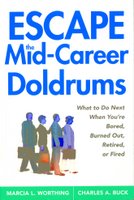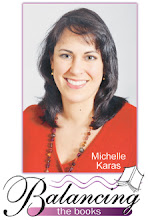Looking to save money on books?
Here in the editorial offices of The Mercury (I make it sound grand, don't I?) editor Nancy March, author of The Daily Overload, had the idea to bring in some of her recently read books and magazines and start a lending library. Other readers in the office, including myself, have contributed, and I've been picking great books from there ever since. A great way to save money! When the books have been in the "library" a long time, we will cart them over to Gently Used Books in Douglassville. (Another great place to save money and find great books locally, as is the Pottstown Public Library).
Below is an interesting "On the Money" column from the Associated Press about saving some money on books. I usually run this weekly column on the print side, but it got bumped with all the craziness on Wall St. in the past two weeks. But saving money is always timely. And saving money on books rocks!
Read on for more ways to budget your reading habit:
Beyond the library: 6 ways readers can cut costs
By Candice Choi
AP Business Writer
NEW YORK — One budget line Wendy Li isn’t watching even in this tight economy is her spending on books. That’s because she uses PaperbackSwap.com, one of the book trading sites that are growing in popularity.
“All I have to pay for is the postage,” said Li, a 44-year-old banker in New York City. A diet of three books a month costs her only about $6, clearly a bargain for an avid reader.
Whether it’s trading titles, downloading e-books or tapping discounts at major retailers, borrowing from the library isn’t the only way readers can cut costs.
Here are five ways to ensure your love of reading doesn’t become a casualty to high food and gas prices.
Start Swapping: If you’ve got books to barter, check out sites such as PaperbackSwap.com, Bookins.com and BookMooch.com.
The rules are simple; generally you list the books you’re willing to trade. Every time you mail a title out, you get a credit or point, which you can redeem for a book. At PaperbackSwap.com, which currently lists 2.4 million books, you can also purchase credits for $3.45.
Membership is free on all three sites, so your only cost is shipping. Mailing a paperback at the lowest rate typically takes around seven days and generally costs less than $3. After you get a book, it’s yours to keep if you wish.
One drawback to these sites is that new or rare titles may be hard to find. Also, because you’re trading with strangers, you won’t get the same guarantees as with a retailer. But the sites may be able to help mediate a dispute, or award credits for lost damage.
Bookins.com, for example, promises to refund shipping charges and award credits if you don’t get the books you were promised. However, there aren’t any guarantees at BookMooch.com or PaperbackSwap.com, which, despite its name, also lists hardcovers, CDs and DVDs.
Kelly Fowler, a member of the site for two years, said she once agreed to swap three books with a member in a discussion forum. Yet after mailing out her box, she never received the books she was promised.
Fowler, a 38-year-old homemaker in Clinton, Tenn., notified administrators and said the member was immediately banned. She never got her books back, but she said it’s only happened once in the more than 300 swaps she’s made to feed her love of harlequin and romance novels.
For a more unusual approach to trading books, there’s BookCrossing.com. The idea is to leave books in public places — in an airport lounge, on a park bench — and let people find them. Users log onto the site to note where they “released” the book. For instance, someone recently posted that they left a copy of “The Nanny Diaries” at a Starbucks in the Kingsview Village Shopping Center in Germantown, Md.
Users can search for books by city, type of venue (such as museums, coffee shops) or title. This may be a little too whimsical for some, but it does save the cost of postage.
Buy Smart at Major Retailers: If you’re ordering a book online, remember to compare prices at major retailers. On Amazon.com, for example, a new paperback copy of the best-seller “Eat, Pray, Love” was listed for $9, compared to $10.50 at Borders.com and $13.50 for nonmembers at BarnesandNoble.com.
What’s more, all three retailers and eBay.com also offer used copies through third-party sellers. Borders recently listed used paperback copies of “Eat, Pray, Love” at prices ranging from $4.44 to $15.75. Sellers are typically authorized by the retailer, but be sure to check each site’s guarantee policies on quality and returns. You can also view customer ratings and comments on third-party sellers.
Plus you’ll want to check to see if there are any deals advertised for shipping, or membership programs that may offer regular discounts.
Go Electronic: With the help of volunteers, the nonprofit Project Gutenberg compiles e-books and offers 25,000 free titles at www.gutenberg.org. The catalog includes fiction, nonfiction and reference books no longer protected by copyright.
DailyLit.com sends serialized books via e-mail. You can set the time it arrives in your inbox and adjust the size of how much text you want in each installment.
The site has 650 free classics and 350 additional titles ranging in price from $1.49 to $9.99.
Hit the Pavement: Trade-in your unwanted books at a used book store. Most used book stores don’t pay much, but you might get a better deal in store credits.
Set aside some time to browse the shelves. They may not be as tidy or well organized as at a major chain, but you may come across a rare or out-of-print title you wouldn’t find elsewhere.
Buy at the Library: Libraries often hold sales to clear out space for new books. Prices are generally even lower than at used book stores.
Additionally, about two-thirds of the 65,000 public library systems in the country have a local Friends of Libraries chapter that helps raise money. Most chapters hold annual book sales where paperbacks usually go for around 75 cents and hardcovers sell for $1 or $2, said Sally Reed, executive director for the national organization.
While you’re there, don’t forget to sign up for a library card if you don’t already have one. You won’t be the only one checking out books in this economic climate. Last year, borrowing at libraries nationwide was 10 percent higher than during the 2001 economic downturn, when there was a similar spike in visits, according to the American Library Association.
On the Net:
www.paperbackswap.com
www.bookmooch.com
www.bookins.com
www.bookcrossing.com
www.amazon.com
www.barnesandnoble.com
www.borders.com
www.dailylit.com
www.ebay.com
Labels: Balancing the Books, Candice Choi, Gently Used Books, Michelle Karas, Nancy March, On the money, Pottstown Public Library, save money, The Daily Overload, used books
 RSS
RSS





